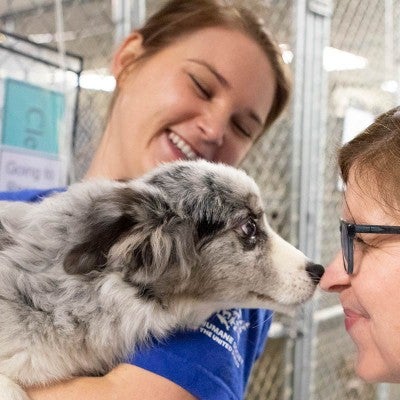Headlines from the front lines
Sign up to join the fight for all animals with email updates and text alerts—you can be first to take action on the issues that matter most.
Access exclusive content and media materials in our press room.
A Humane World
"A Humane World" is the official blog of the HSUS—a first-hand account of our ongoing efforts to protect animals, as told by our current president and CEO, Kitty Block. Subscribe for daily or weekly updates.

Meredith Lee
/
The HSUS

